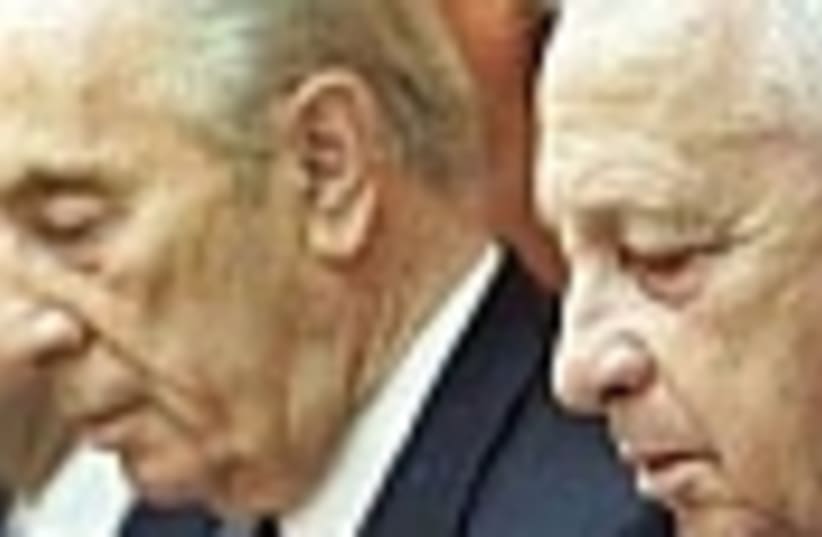| More about: | Benjamin Netanyahu, David Ben-Gurion, Yitzhak Shamir, Shimon Peres |
Rocking toward a gerontocracy?
Perhaps in another country Sharon's and Peres's combined age would be considered a liability.


| More about: | Benjamin Netanyahu, David Ben-Gurion, Yitzhak Shamir, Shimon Peres |